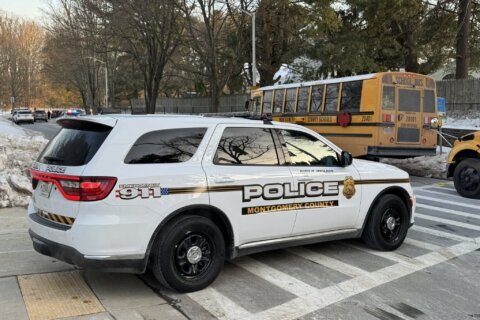Frigid temperatures put a lot of strain on home heating systems, and homeowners need to know what to do if their system — whether a furnace or heat pump — stops working in the cold.
Kevin Brasler, the executive editor with Washington Consumer’s Checkbook, told WTOP that with air conditioning systems, you’ll often get a heads up that something’s wrong: they just won’t keep your home as cool on hot days.
But with home heating systems, Brasler said, “They’ll just go kaput suddenly,” and when that happens during cold snaps, that leaves consumers in a bind. “You’re not really sure what’s going on with it, you just know it’s not working.”
So, consumers call HVAC service providers, hoping for a simple fix.
The first thing any consumer should do, Brasler said, is make sure they are dealing with a qualified service provider.
Homeowners who have gas heating systems want to take special care, according to Brasler. In that case, he said, “You only want to deal with a licensed contractor. There’s just too many things that can go wrong, and there’s too many dangers you can pose to yourself and other people in your family if it’s not repaired correctly.”
If you’re told that the unit in your home is no longer able to do the job, “You need to bring in other services to look at it to give their opinion also,” Brasler said.
That’s not always a choice that a homeowner who’s been suffering through heat loss feels able to do, said Brasler. When you and your family are shivering in the cold inside your home, “It doesn’t give you a lot of time to shop around,” but he said it’s important to make sure you get the right fix for the right problem.
Among the common complaints consumers report to Washington Consumer’s Checkbook are those dealing with contractors not showing up, or that the issue wasn’t fixed correctly the first time.
But by far the biggest and most serious complaint they get, Brasler said, is that a consumer was “oversold” or told they needed an entirely new system when that wasn’t the case.
“We found that some companies, especially for new installations, charge thousands of dollars more than what others do for the exact same equipment,” Brasler said.
So, he advises, get that second or even third quote. “You really do, if you can, need to shop around and make sure that you’re not overpaying.”
While many HVAC or other home repair firms may take cash or checks only, Brasler advises paying by credit card. “When you pay with a credit card, you get really strong consumer protections that you don’t get when you pay via cash or check,” he said.
Not every call, even for an emergency repair, means there’s a catastrophic problem with your heating system.
Brasler said: “Often, furnaces can be repaired quite easily or quite inexpensively.”
Ron Etzyon, president of Eli’s Heating and Air Conditioning in Montgomery County, Maryland, agrees that there’s often a simple issue involved with furnace or heat pump failures.
“And, many a time, it’s caused by a dirty or clogged filter,” Etzyon said. “I can’t tell you how many times I’ve gotten to a job site and, lo and behold, the homeowner hasn’t changed the filter and it’s clogged and that causes a lot of problems.”
Another issue is when snowfall blocks or clogs the outdoor heat pump. “It’s always a good idea to turn the system off and clear the snow off the top and sides of the unit so it can breathe easy,” Etzyon said.
Etzyon emphasizes that homeowners should first turn their heat pump off before brushing off ice and snow. “You stick your broom or something or bristles or whatever” into the heat pump’s moving blades and you can end up dodging flying objects.
“You don’t want any ice flinging off and smacking you in the head or anything like that,” said Etzyon, and you don’t want to damage the moving parts of the heat pump.
Etzyon said some furnace failures occur in gas units when something called the “hot surface igniter” gives out. “These are like a delicate light bulb. You look at them wrong or whatever, they’ll crack and they’ll blow out like a bulb and that’ll cause a no-heat situation for you in your home.”
One of the best ways to avoid having to make an emergency call in freezing cold or blazing temperatures is to keep up with the basic maintenance on your unit.
And, as both Brasler and Etzyon say, make sure your filters are replaced as needed.
Get breaking news and daily headlines delivered to your email inbox by signing up here.
© 2024 WTOP. All Rights Reserved. This website is not intended for users located within the European Economic Area.








